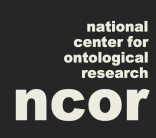A domain ontology is a representation of some part of reality, (e.g. medicine, social reality, physics).
The Philosophome
Semantics of Biodiversity
Paper: Semantics in Support of Biodiversity Knowledge Discovery (PLoS ONE, 2013)
Video Presentations from: Semantics of Biodiversity Workshop (2012)
- Ontologies as a method of viewing data
- Basic Formal Ontology (BFO)
- How to build an ontology with BFO
- Tracking referents with Instance Unique Identifiers (IUIs)
- Tracking Changes in Our Understanding of Reality: Reality vs. Beliefs
- Darwin Core (DwC) and Basic Formal Ontology: Putting it All Together
Topics Included:
- Building Darwin Core top-down in BFO
- Organisms, photographs, media
- How to re-use ontologies
- Principles of singular nouns, secondary use, understandability
- Writing good definitions (DwC Examples)
- Management strategies
- Ontologies for reuse (BFO, EnvO, IDO, OBI, Plant Ontology , Uberon, IAO)
- Educational resources (OBI, Protege, BFO)
Finance and Economics
Barry Smith and Wolfgang Grassl, An Application of Basic Formal Ontology to the Ontology of Services and Commodities Institute for Business Informatics, University of Koblenz, Germany July 23, 2013
Barry Smith, Reference Data Integration: A Strategy for the Future, Financial Reference Data Management Conference (FIMA), New York, March 2012
Military and Intelligence Ontology
JFCOM: Semantic Web and Joint Training (2010)
I2WD: Semantic Enhancement for DSGS-A: Distributed Development of a Shared Semantic Resource (2012-13)
I2WD: PED Fusion via Enterprise Ontology
Common Core Ontologies (preliminary statement)
Ontology for Intelligence, Defense and Security
Ontology of Planning
Ontology of Engineering
Bob Young: Towards a Reference Ontology for Manufacturing (2016)
Engineering Life Cycle Ontology
Ontology for Clinical and Translational Science
Clinical and Translational Science Ontology Group
Suggested Reading
Coordinated Evolution of Biomedical Ontologies
Avoiding Perspective-Relative Silos
A Repeatable Process for Ontology Development
Avoiding Semantic Stovepipes: Five Ontological Principles for Interoperability
